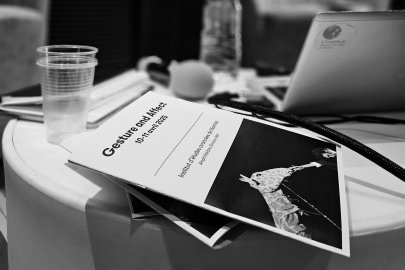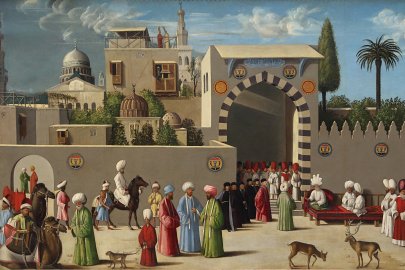
Septembre 2023 à juin 2024
Florence Ninitte’s research mainly focuses on the transfer of knowledge of Arab-Muslim origin in the cultural and intellectual fields of medieval France.
She gained a BA and MA in Romance Studies at the UCLouvain where she also achieved a PhD in Medieval Languages in December 2016. Her doctoral dissertation considers the reception and the integration of Arabic texts about Islam in the Speculum historiale (ca. 1244-1559) and in its French translation by Jean de Vignay (early 1330’s). The main purpose of this work was to explore the renewal of the description of Islam and its Prophet through medieval encyclopaedism during the thirteenth and fourteenth centuries.
Between 2016 and 2018, Florence has held the position of scientific collaborator at the Institut des Civilisations, Arts et Lettres (UCLouvain). Her research has focused on the figure of Arnoul de Quincampoix, astrologer, physician, and translator at the French court (early 14th century).
Between 2019 and 2023, she carried a intitled 'A Second-hand Qur’ān: The Role of the Apology of al-Kind? in the Transmission of Fragments of the Qur’ān in Medieval French Literature', within the framework of the ERC European Qur’an (Nantes Université).
The political and didactical instrumentalization of the figure of the Prophet Mu?ammad in French medieval literature (14th - 15th centuries)
The aim of Florence Ninitte’s research is to shed new light on the instrumentalization of the figure of the Prophet and Islam in French literature with a political aim, written between the end of the 14th century and the middle of the 15th century.
This literature was intended to be a political tool in the service of the ideal of good government, useful to the prince, as well as to his advisors and relatives. It is of public interest and bears witness to the commitment of its author.
This research will be carried out through the examination of three major literary works: the Ballade MCXXVIII by Eustache Deschamps (ca. 1340-1404), the Cas des nobles hommes (1409) by Laurent de Premierfait and the Livre d'Esperance (1429-1430) by Alain Chartier.
In the light of these three works, the aim will be to determine the way in which the figure of the Prophet is placed at the service of this literature, of the ideal of good government.



